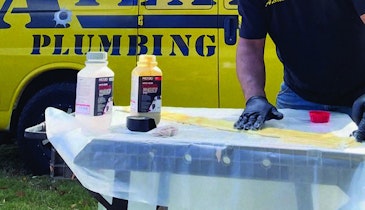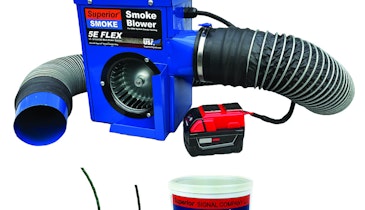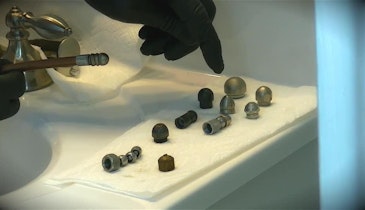In technical terms, a recession occurs when the gross domestic product falls for two consecutive quarters and employment also declines. For business owners, the definition is much simpler: A business slowdown that hits the bottom line.
During these trying economic times, how a business copes often determines whether it succeeds when the economy rebounds. For some companies, that means implementing new strategies, such as diversification.
“To combat the recession, we’re trying to diversify,” says Dan Grenier, owner of Daniel’s Plumbing Service in Sarasota, Fla. “We’re a plumbing company, but we also do camera work, leak detection and jetting. About a month ago, we started another company and bought a vacuum truck, which will help take up some of the slack if business is slower this summer, as we expect. We’re investing a significant amount of money.
“My employees are like family to me, and in order to hold them in during slow times, I’ve got to find something else they can do. It only makes sense to spend a little money, especially since there is work out there that we can do with this truck.”
Cutting costs is another key tool. “Every belt is tightened in our company, from reducing fuel use to trying to buy more things off the Internet,” he observes. “If we can save money in just a couple of little areas, it makes a big impact by the end of the year.
“For instance, to save fuel, we just bought GPS units for our trucks to keep them from crisscrossing each other during the day. In order to save, we have to get smarter, and that comes down to a lot of common sense. If you can save 20 miles a day for each of a dozen trucks, after 250 working days a year, you’ve generated significant savings.”
Diversification also requires investing in new equipment to stay ahead of and differentiate from competitors, says Jake Saltzman, the owner of First Response Drain Service in Sandwich, Ill.
“We’re located near the Chicagoland area, so there are a lot of plumbing companies,” he says. “When the housing market slows down, everyone wants to get into something else that’s sustainable. Right now, it seems like if you can afford to buy a rodder and a camera, you can start your own drain business. That makes it tough to be competitive, because everyone is out there cutting prices.
“Even though it’s a difficult time financially, I trump that by fighting back with new technology. If I’ve got the better camera and the better rodding equipment and a nicer truck, as well as a good reputation, I feel like I can withstand this economy and set myself apart from my competition.
“Recently, I invested about $8,000 in a trenchless pipe repair system so we can do pipe patching. I also bought a large tandem-axle jetter, which we try to keep on the road as much as possible to make money, because it was a significant investment. Sometimes you have to spend money to make money.”
In addition, Saltzman says that when the economy spurs more price-cutting competitors, it’s important to emphasize service. “Just because you’re a plumber doesn’t mean you know how to clean drains,” he says. “You can’t be a new-construction plumber and then overnight expect to get into the service side of things and do a good and efficient job for people.”
Steve Ryan, president of Ryan’s Modern Sewer Cleaning in Grand Rapids, Mich., says diversification during previous recessions is now paying dividends. “We’ve been weathering the recession pretty well, thanks to diversification,” he says.
“A number of years ago, we diversified from residential and commercial into jetting operations for municipalities and industrial customers. Then, in the mid-1990s, we diversified into water operations for small municipalities and associations with 50 to 80 homes, doing things like water sampling and fire hydrant and water main repairs.”
A major challenge is breaking into new markets and obtaining certifications. Ryan did that by offering competitive pricing and volunteering services to gain a foothold. “You need to have time and experience to get certification, and that’s kind of difficult to do unless you have someone open a door for you,” he says. “To become the municipal operators for Ada Township, we stopped in and gave them a rate sheet, and told them what we could do. At that time, they were using another municipality for their services, and we were very competitive. So they switched to us for sewer cleaning.
“Then, when their current water operator went on vacation, we volunteered to fill in, which got us enough experience to get our certification in water operations. You’ve got to be resourceful.”
Ryan adds that when companies diversify, it helps to cross-train employees to capitalize fully on new market opportunities. “During the mid-1970s recession, we really looked at diversifying and cross-training,” he says. “Back then, we noticed that when the economy is good, residential and commercial customers tend to spend more money and do preventive maintenance and so forth.
“When the economy is bad, residential business declines, but municipalities get funding from the federal government, and then those areas pick up. That’s what we’re seeing right now. With cross-trained employees, we can easily move them from one position to another. We don’t have to hire new crews and get them up to speed when market needs shift.”
To boost efficiency and cut fuel costs, the company invested in GPS for service vehicles. “That way, drivers can electronically route themselves straight from one job to the next,” he says. “Before, the guys would tend to jump on the freeway to drive a little faster, but they’re actually going a little out of their way to do so. With GPS, they’re seeing it’s actually a shorter route to go straight through town.”





